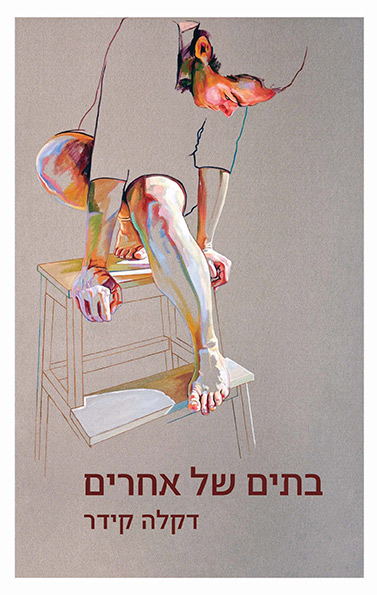
Other People’s Homes
One day in early summer, Yoram leaves his wife Ruthie and daughter Julie without any warning or explanation. Ruthie, in her 40s, and Julie, 17, become outsiders in the sleepy, family-oriented village where they live, but they are determined to heal their disrupted lives. Unexpectedly, Julie encourages her mother to find a new man, and Ruthie, an attractive woman, soon nabs Amnon and finds consolation in his arms. But Julie hates him from the first moment, and Ruthie’s ability to find new interest in her life only highlights her daughter’s fragile condition. Shortly after Amnon walks out stormily, Motti appears, looking like an ideal solution. Apart from an odd obsession with his appearance, he seems to be the perfect man. But he brings with him his sensitive, handsome son Jonah who has suicidal tendencies and lives in a special hut that Motti builds for him in the garden. And yet, amidst the strange relationship that develops between Jonah and the rest of the household, Jonah and Julie – surprisingly – fall in love.
Other People’s Homes courageously tackles the cost of love between couples, and between parents and children. Deakla Keydar creates one-of-a-kind characters in the shadow of disaster. With rare honesty, she shapes dramatic scenes and humorous, sometimes grotesque situations. Builds an enthralling plot that leaves a deep impression.

-
“I read Deakla Keydar’s novel almost without putting it down. The book keeps you in suspense … Keydar [is] a wizard with words, but [what makes her a writer] is her dark imagination … the vivid subjectivity that dominates events … and the furious sequence of situations [that] both follow each other logically, yet are very surprising … A powerful book. ”
-
“I read it in one night…I couldn’t stop … I don’t really want to decipher the spell that the book cast on me … The miracle of the encounter between a particular reader and a particular book is, after all, a very personal miracle … Many books are published; few enter your heart like this one. ”
-
“Keydar’s main achievement is the ability to depict lives and situations that are ostensibly normal and yet to veer away to key scenes that are unexpected, and yet both logical and convincing. ”
-
“Overwhelming, intense.”
